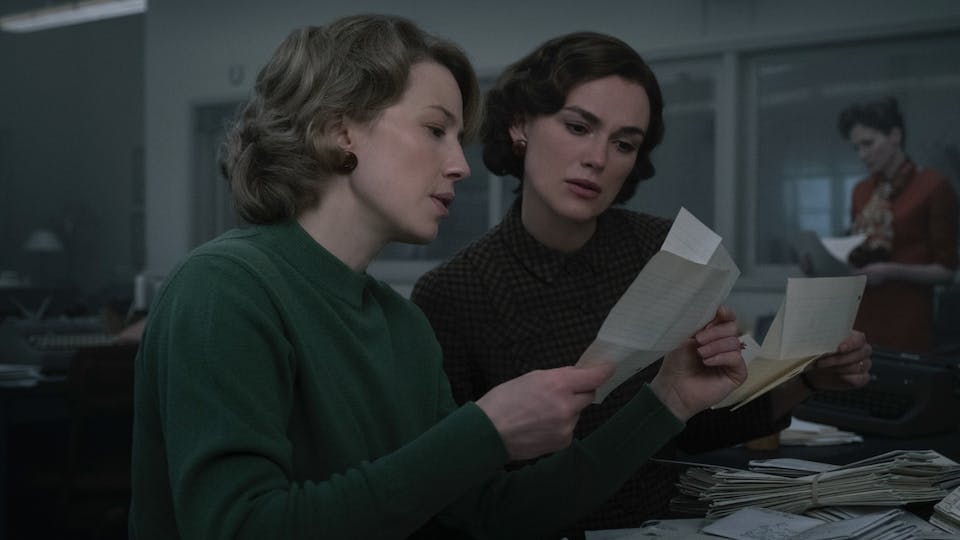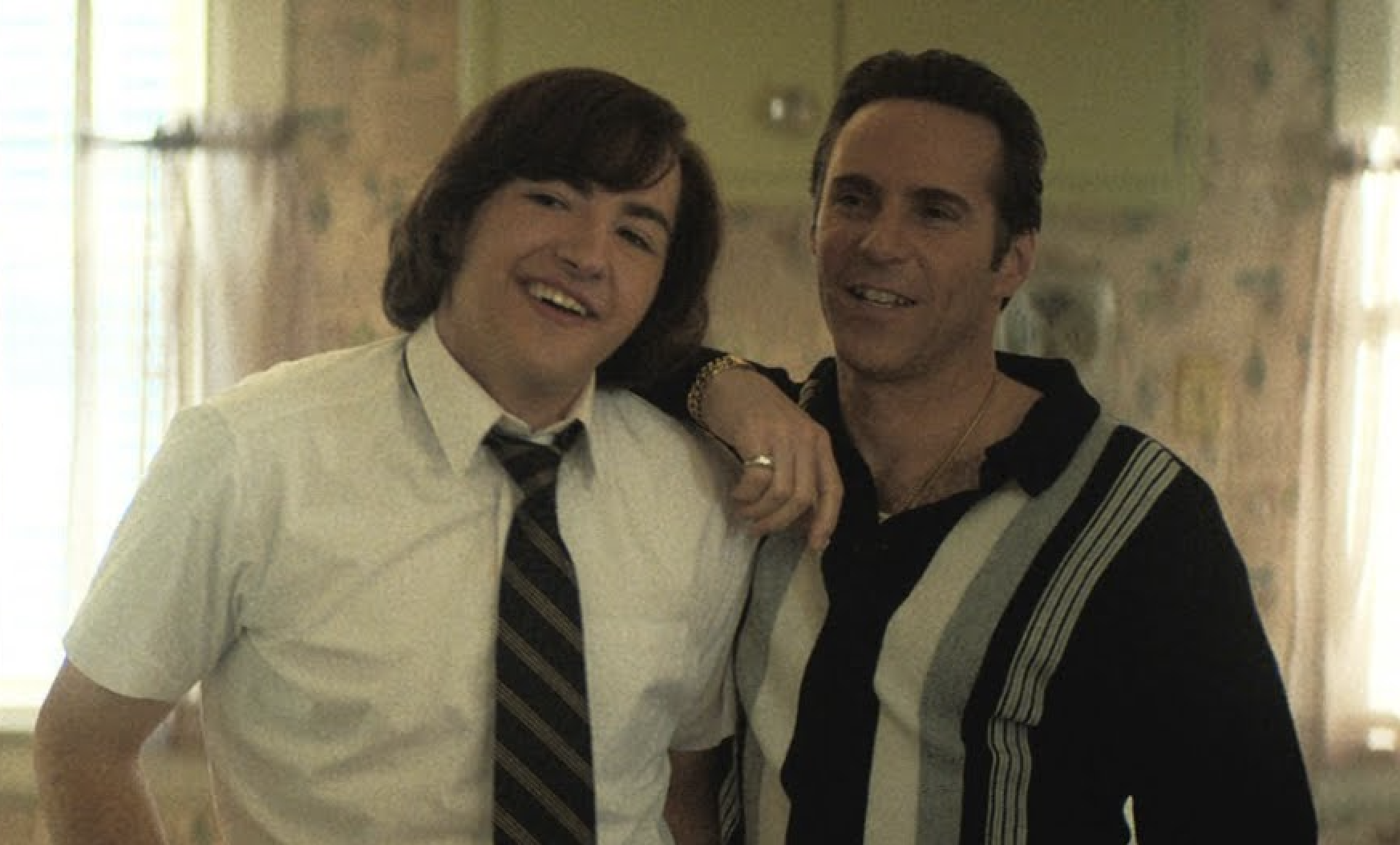Boston Strangler
by George Wolf
Writer/director Matt Ruskin wants us to remember that decades before the events of All the President’s Men, Spotlight or She Said, journalists – specifically women journalists – were heroically committed to finding the truth.
Wading through historical record with a detailed screenplay that’s surprisingly unaided by any source material, Ruskin crafts Boston Strangler as a salute to two dogged reporters and the mystery that still surrounds their biggest story.
In the 1960s, Loretta McLaughlin (Keira Knightley) was a lifestyle reporter for Boston’s Record American. She pressured editor Jack Maclaine (Chris Cooper, reliable as always) for a better beat, but got approval to work the Strangler story only on her own time. As Loretta’s promising leads met increasing roadblocks, street-wise veteran Jean Cole (Carrie Coon) had her back and the two “girl” reporters started lighting up the front pages.
Knightley and Coon make for a team just as formidable as their characters, highlighting the contrasts of the two women’s lives while making it clear how much they came to depend on each other. The always welcome Alessandro Nivola adds solid support as Detective Conley, a sympathetic cop who proves useful to the case.
And you might remember that case eventually led to the confession of Albert DeSalvo (David Dastmalchian). But Ruskin is arguing that bit of history is far from settled, and he methodically makes his case via the work of McLaughlin and Cole.
Ruskin’s storytelling is patient and assured, nicely mirroring the ladies’ work ethic and building a subtle bridge from past to present through the sexism and police corruption that made the truth even more evasive.
The film is more compelling than thrilling, striking a tone that fits the material. It’s not the splashy headline that’s important, it’s what kind of substance is delivered underneath. Boston Strangler delivers a relevant history lesson, and another salute to the ones that keep asking questions.








